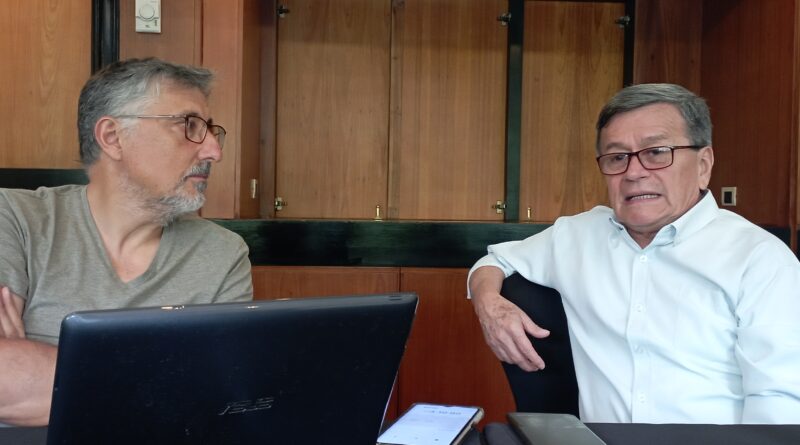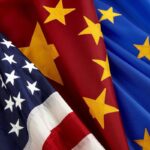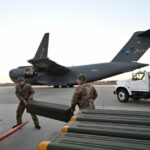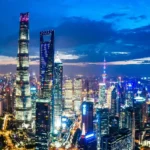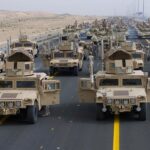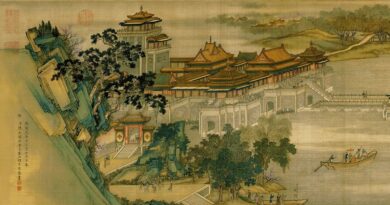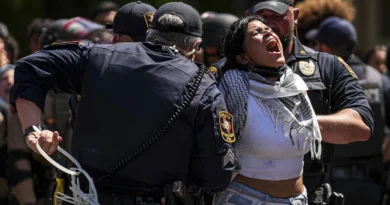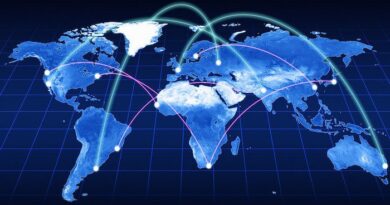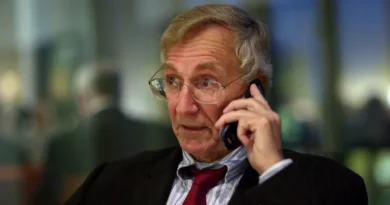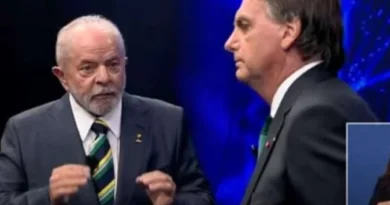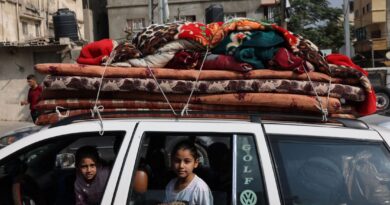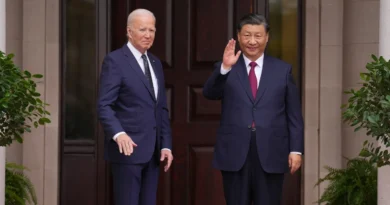Pablo Beltrán, head of the ELN negotiating delegation: “They have tried to poison us to prevent a peace agreement”
PASCUAL SERRANO
Caracas
On Thursday, August 3, an unprecedented six-month ceasefire began in the war between the Colombian army and the National Liberation Army (ELN) guerrilla. That ceasefire was extended for another six months on February 6 in Havana. After the Colombian government signed the peace agreement with the FARC in 2016, the ELN remained the oldest guerrilla in Latin America, created in 1964 and inspired by Liberation Theology and Marxism. This insurgent group has, on the one hand, about 5.000 armed men and, on the other, many more participating in political and social life clandestinely.
After the period of talks in Havana, the peace talks between the guerrilla and the Colombian government have entered a new phase, now in Caracas. After a first round until April 22, both parties will negotiate again in the Venezuelan capital between May 20 and 25. However, it does not seem that the road is being easy. This is the conclusion drawn after the conversation held somewhere in Caracas with the ELN's chief negotiator, Commander Pablo Beltrán. A man who has been in the guerrilla for 54 of his 70 years.
In February the sixth cycle of dialogues ended in Havana and now we would enter the seventh. What has been progressed from the time of Cuba to the present?
Well, I would tell you that we have made progress, but like the crab. I explain.
We agreed to do a seventh cycle here in Caracas, but a very serious problem has arisen. Another group has emerged that claims to be ELN, in Nariño, on the border with Ecuador, and is being recognized by the government and has established a dialogue table with them, but we do not recognize that group, because although it comes from the ELN, it was separated by a disciplinary process. The government organized a different peace process for him and this is not a serious fact, but very serious because now there would be two ELN, and the government cannot persist in validating this impersonation of the ELN.
We said that if the government does not resolve this and they persist in this impersonation, we will freeze the dialogue. They told us that they were notified, they took note and they were going to fix it, and that's how the meeting in Havana ended. The problem is that fifteen days later, on March 12, the government announces a demining agreement with that group in Nariño.
Well, perhaps it is also understandable that the government wants to guarantee peace with the two groups because, regardless of whether it considers both groups to be ELN or not, the problem is that if it does not guarantee peace for the two groups, the conflict would continue.
The problem is that they told us that they were not going to involve them with another meeting in Havana. We told you that the person who heads all of this has a disciplinary process here, which he is not going to prescribe and if you welcome him, protect him and give him political status you will damage this table. I think now you understand my crab simile. We are in a frozen state that we must try to get out of now.
But I believe that some progress has been made, for example, the issue of withholdings, of kidnappings. As I understand it, you have agreed to put an end to them because a multi-donor fund was approved to supplement the subsistence resources provided by the withholdings. How's that?
Well, that is a very broad debate. We announce our will. During the ceasefire, from August 3 to February 3, we showed our willingness to stop making these economic withholdings, but for this there must be a contribution from the international community. They told us that a multi-donor fund would be created for that, but only the owner is there.
A regulation had to be made for the Steering Committee, for the Administration Committee, and that has not been done, so we had to make a play like poker. I explain it to you.
We told them: since creating the fund takes a long time, we give them three months to make regulations and guidelines, because all of this has international protocols. The idea is that in three months the fund would be put to work and, as a show of will, the ELN, while the fine print of the agreement is finalized, we, unilaterally, suspend the economic withholdings as a sign that we do want an agreement, even if we run out of income. It is the ELN's greeting that the fine print of the fund is done. Well, those three months now end on May 3, but the fund has not been created.
And what are you going to do?
Well the gift is over.
It seems that, indeed, I am seeing the crab thing more and more clearly. You also indicated that you were going to talk to the regional fronts and not only the central command would decide, in this way it was guaranteed that what happened with the FARC would not happen, that in the end some fronts disassociated themselves from the peace agreements.
About this there is a black legend against the ELN, saying that we are a federation and there is no centralized command. Well, tell me which of the agreements we have made at this table has been breached by any ELN front.
We are a political-military organization with internal democracy, we have democratic decision-making mechanisms. I have just completed a 33-day tour of consultations with my colleagues, where I can tell you that no ELN front was left unheard.
And what was the tone of the fronts, what were your concerns or what did you perceive, what temperature did you capture at the bases?
There is a lot of discomfort. Because under the ceasefire that we are observing we have received many attacks.
But that would be a clear violation of the agreements by the other party, the government, if those attacks are from the army.
I'll tell you how you manage it. They do what I call paramilitary operations, which means that instead of having the regular army bracelet they put on another bracelet. That is a paramilitary operation.
And does that imply the responsibility of the president of Colombia? Maybe it's out of his control?
We even discussed this with the Colombian Minister of Defense in Cuba, and it is assumed that they are trying to control that. First they said that the troops did not do that, then they signed a paper saying that no one can do that, yes, but hey, go to every corner of this country to monitor it, they have 500.000 troops, we are 6.000. They are the ones who do not have control over their troops.
It turns out that there is a law that everyone knows very well, which is the law of counterinsurgency, which says: do whatever it takes to put an end to the guerrilla with the only limitation being that you don't get caught. The bad thing is not what you do, but that you are caught doing something irregular. A few months ago they caught some soldiers in the south of Córdoba, the landowners paid the patrol, they put on a paramilitary armband on high ground and expelled some farmers. Of course, since they were caught, it was up to the army command to proceed and take measures, but the bad thing was not what they did, it was that they were caught.
So our people say, there is a ceasefire, but we have received more attacks, there is none of the fronts, especially in the West and the center of the country and in the East, that during the first three months of these six months has not had constant harassment and attack. Despite this, we continue with our goal of peace, we are going to demand that commitments be fulfilled.
At the Havana meeting we said that the cessation has several crisis-generating factors. Factor one, that the group that claims to be the ELN Nariño is given a status like ours; factor two, that paramilitary operations against us have grown; factor three, which is extremely dangerous, since not only have attack operations on the command of the National Directorate continued, but they have increased. For example, it is not for them to distance themselves from us now, but for it to be known that they have begun to carry out attacks on the places where those higher commanders are located. They have sought to poison us. That is bacteriological warfare and is prohibited. We have verified this with people we captured and they recognize that they are part of the intelligence of the police or the army and they show us the poison they provided against us.
And do you believe that the Colombian government is aware of and responsible for this dirty war?
We informed the Minister of Defense, who is a great jurist, he is a defender of human rights and he said that he would take note of our complaint to see what he could do.
In other words, it is not a government initiative?
Well, he said, “be careful, we will discuss this at the table.” In a letter that he sent us in response, he said “I do not know nor have I provided guidance.” But there is an important factor, he does not know nor has guided, but this dirty war is being waged. I ask them what they are going to do about what they have done, but they don't speak out.
In a previous interview we talked about the participation of the people in the dialogue, we understand by people, not only guerrillas, but the people, what about that?
It's going well, a body called the National Participation Committee has been convened and it has about 100 members. There they are from the indigenous people, blacks, peasants, women's organizations, from the regions, the head of the Jesuits in Colombia, the head of the industrialists, etc. We have tried to make a portrait of all of Colombia, so that no one is left out. They are finishing what is called a national participation plan, making a design that must now be completed in May.
And that concludes point 1 of the agenda, which was to organize the participation of society. The dialogue table or the ELN did not do it, they did it themselves. What does that work for? They have been told, well, say what needs to change in Colombia, and a commitment is made for that, that is, it is a way to achieve peaceful transformations, but at the same time a kind of social and political alliance is made to propose to everyone: let's make a national agreement to support that. That's the strategy.
It is another way of seeing peace, not only that a guerrilla group ceases to exist, but that there are social transformations and with an idea of a transition process, because they are profound transformations, which cannot be carried out by a single government. Ah, but this government has to do its part as part of the entire process.
Speaking of long processes, obviously an agreement with the ELN represents progress for Colombian society to the extent that peace is achieved and violence ends, but what social achievements do you think it can represent, as well as social commitments of the government? Colombian that affect and improve the lives of all Colombian citizens beyond peace?
If you asked me about the most important reforms or democratizing elements that Colombia requires, I would tell you the following: Let the regime stop persecuting and exterminating. We are a guerrilla that says that the way out for the country is a process of socialism, and there will be people on the right who believe that capitalism can be humanized, to give an example. It seems good to us that they try that, but that they also accept that we have a different political position. In other words, the fact that I have disagreements with former President Uribe does not mean that I have to leave Colombia nor that he has to leave Colombia. That means changing the regime. That is the most important thing that Colombia needs.
You say that “the regime stops persecuting and exterminating,” but who is that regime that persecutes and exterminates? The government, the army?
I'm going to give you data. In Colombia there are six large economic groups, these six large economic groups are in turn linked to fifty-five regional clans, which are the real de facto power. In turn, these economic groups are the ones that control the large communication companies. Look, you have large economic groups in one corner; in the other corner, major media outlets. In the bottom corner, the clans, and in front of the clans, mafias squads and gangs.
And what could President Petro do that he is not doing, to fight against that?
I'm going to tell you what he said to the big capitalists in January. It is a rather economic explanation: In Colombia there is an implication between the underground and the legal economy, the underground lubricates the legal one, but you, who are the bosses of the legal economy, are supported by the underground economy.
That is the economic substrate, but it turns out that this economic substrate generates a regime that is essentially mafia, that is, you have a mafia economy that generates a mafia regime. If we are going to legalize Colombia, legalize it in terms of getting rid of the illicit, let's look to see how those economic circuits are cut, which are the ones that automatically reproduce that mafia culture and that mafia regime. So if you realize, military power in Colombia is not only in the 500.000 members of the Armed Forces, there are clans, gangs, mafias, cartels that are articulated around the rest of the legal facade.
So, of course, you fight above the table and below the table, above the table you fight with the large economic groups and the large communication companies, and below the table you have the regional clans that are 55 gangs. , mafias, squads and cartels and everything is involved.
And could President Petro do something more than what he does?
He has chosen a double path: making alliances and confronting, in some things he makes alliances and in others he makes ruptures. Some work for you and others don't.
After what he has been explaining to me, I already doubt very much whether the program is being fulfilled to reach May 2025 with definitive peace, as the president had announced.
One day the Colombian writer William Ospina was asked what he thought about models of peace. And he said: so far only one has been used and it has been unsuccessful. And what hasn't worked? They blame everything on a guerrilla, they demobilize them and nothing changes. We must put an end to that, it is a failed model. Look, they promised a post-conflict after the demobilization of the FARC and it turns out that the conflict was later exacerbated in many ways because the regions where the FARC exercised a certain social cohesion were left in the hands of all these clans, gangs and mafias, we are worse.
We, when we sat here with the then president Juan Manuel Santos, told him, we are going to look for a new model of negotiation, a new model of seeking peace in Colombia that is not mere pacification, that is, it is not the model that summarized William Ospina.
What agreement did we make? Then two agreements were made with Santos, which still support this table, agreement one, let's look for transformations, but at the same time let's look for the end of the armed conflict, that's what sustains this.
When we started with Petro we did, in Mexico, a repowering of that agenda that we signed with Santos, and it is called the Mexico agreement. There we advance a little more. We sign that we must change the regime, that we must change the economic model, that we must seek sovereignty, that is, that Colombia is not dependent, to use a mild term. That is what was signed in the Mexico agreement, that is, It is that of Santos plus other things. Who was the first to shout against that agreement? Saints why? Because he said red lines are being crossed, and what were the red lines? Well, what Santos put to the FARC: there is no change in the economic model, nor in the political regime, nor in the security doctrine, nor in international relations.
So the Mexico agreement puts its hand on those red lines. And from the right they have been speaking against the Mexico agreement for a year and a half, which is the agenda that we have established here to seek peace. To look for another model of peace based on transformations, the Nobel Peace Prize [former president Juan Manuel Santos] is the head of the position of that model.
You talk to me about Juan Manuel Santos, but the president is Petro, what does Gustavo Petro say about those red lines, are they red lines for him too?
I think that when the Government Delegation signed the Mexico agreement, it signed it in good faith, to put an end to it. After that, the Government has had a lot of pressure to distort that, the main one from what is called in Colombia the Santos group. In fact, Bogotá's main newspaper, El Tiempo, stated that the ELN gave the government a seven-nil victory.
So, part of the things that are happening is the attempt by those more right-wing sectors to grab the Mexico agreement, and since they are ashamed to tear it all down, their intention is to entrench things from the old model in it. They want to make Mexico's agreement coexist with what was called the old model, which is only demobilization and reintegration.
Today the debate at the table is that the Petro Government Delegation wants to convince us that it is good to have this table, but at the same time to have the other demobilization, disarmament and reintegration table in Nariño and there they are throwing the agreement to the ground . That is the debate.
In this peace process there are guarantor countries and accompanying countries. Which countries are they and how do you value the role they are playing?
This peace process is having international support, like never before in a peace process in Colombia. I review the countries in order of appearance, like in the movies. The first group and the one with the longest experience is called guarantors. In which, by our will, we have always asked that it be essentially Latin American. That is, so that this peace process serves as an articulator for many American integration initiatives.
For example, Mexico says that they, as guarantors, are executing part of their Latin American agenda. Venezuela says that the commitment is not only to the peace of Colombia, but that they are also expected to help peace in the entire region. Brazil says its security doctrine is to have no enemies on the border. Everyone participates here supporting the peace of Colombia, because the peace of Colombia makes an important contribution to the peace of the continent. It is not just about helping another, but it is a help for everyone. For this reason, the guarantor group is Cuba, Venezuela, Brazil, Chile, Mexico and the only non-Latin American group, Norway, which being among Latin Americans almost seems similar.
But there is another group, which is that of permanent companions, which is the United Nations through the head of the United Nations mission in Colombia and the Colombian Catholic Episcopal Conference.
And on the other hand, the third group has also been participating, which is called the group of support, accompaniment and cooperation countries, which is European, which was created from the beginning, in Caracas in 2016 to finance the expenses of the ELN delegation, because by agreement it is stipulated that the ELN does not receive money from the government. We do not receive money from the counterparty, that is why the European group was created, which at this moment is Germany, Spain, Sweden and Switzerland.
I believe that you should increasingly get involved in the country's political agenda, beyond the Peace Agreements, that is why I ask you, at this moment, what problems you see in the Colombian political agenda. That is, issues that, if tomorrow you were a political party, would be the subject of discussion beyond peace itself.
We are already there, in the sense that we are an organization sui generis We are a political-military organization. In other words, we are not just someone's military arm, which is traditional, that means that we have more democracy than an army and more discipline than a party. We are in the large and medium-sized cities of Colombia, there we have guerrillas and their fundamental activity is social politics and we participate. For example, President Petro said that we are going to create a Constituent Assembly, and all our people in the cities are ensuring that there is a Constituent Assembly and that it is Social, that is, that it is legitimized that these reforms and changes are necessary. So we are participating.
But... whether from legality or illegality, what is that participation like?
Our militancy in the cities is clandestine, but they are part of legal social cooperatives. In the social political fabric they are like one more. The social political activity of the ELN in the cities will be 95% and the military activity will be 5%, because at this moment there are six months in which no military operations are carried out.
So we are already doing that, so what political moment is Colombia in today?
We have a right that makes pacts with Petro on some things, but on the street they say that Petro is taking the country down the wrong path, that is, they are bad allies. But it's his turn to dance with those, because that's what we have. We say that, instead of resorting to alliances with the right, it is better to mobilize society, which is the one that has asked for changes. Instead of seeking alliances with those who do not want changes because they have privileges, and you know that privileges take away rights. If you are going to seek alliances with those who do not want the changes, then those changes are not going to work.
I would like to add the following. At this moment, in the world, what prevails are actions of force, the denial of political and diplomatic solutions, violations of international law, that is what predominates in the world and that is what is fueling wars. In Colombia we are doing the opposite, with a conflict that has already lasted, since Gaitán was killed, for more than 70 years, they are working to ensure that the solution to the conflicts, starting with the armed conflict, is political, that is, we want a solution policy.
In a country that has been bleeding for 7 or 8 decades, finding a way to resolve conflicts and differences through dialogue, diplomacy, and politics is a structural change and it is not easy, but despite that we think it is the way out, and we that makes Colombia viable, and we must persist even in the midst of this swamp in which the dialogue table is located and we must get out of the swamp.

